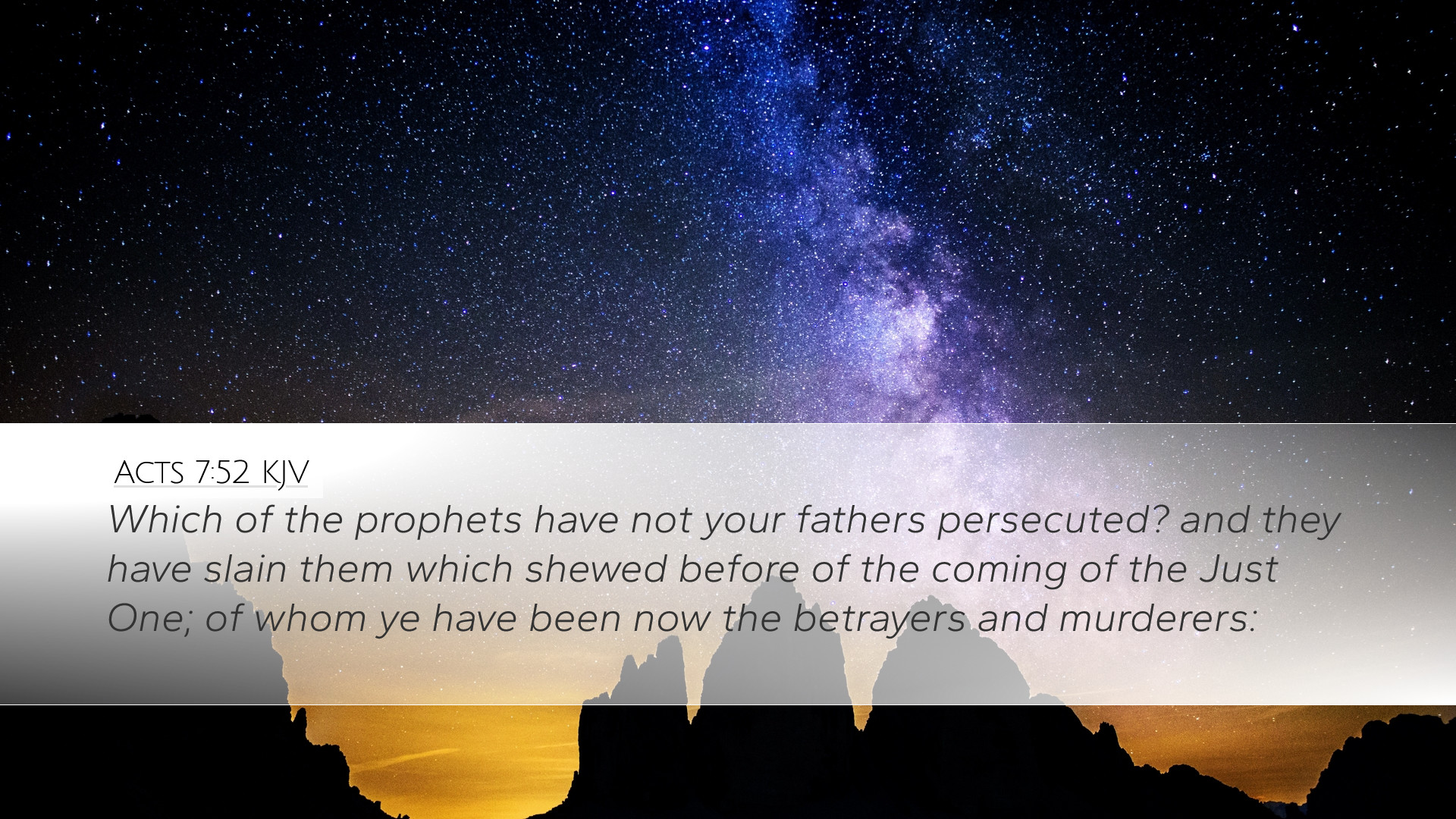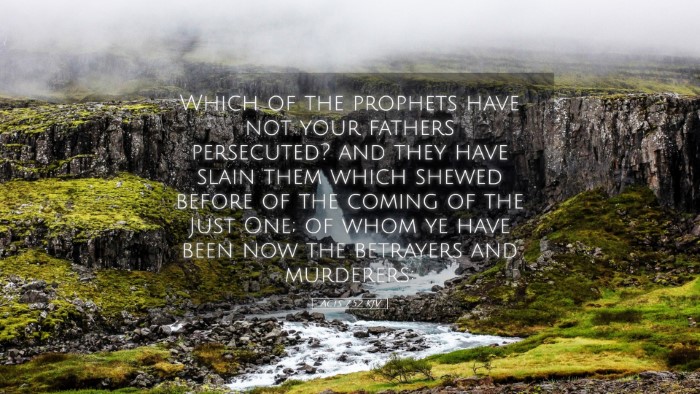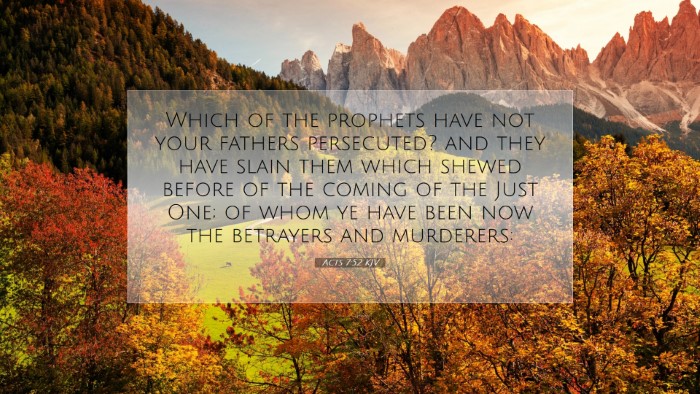Commentary on Acts 7:52
Verse: "Which of the prophets have not your fathers persecuted? And they have slain them which shewed before of the coming of the Just One; of whom ye have been now the betrayers and murderers."
Introduction
This verse occurs within Stephen's powerful defense before the Sanhedrin, where he emphasizes the recurring theme of Israel's rejection of the prophets and God’s messengers. The confrontation culminates in Stephen accusing his hearers of being the final link in a long history of rebellion against God, culminating in the rejection and murder of Jesus Christ, referred to here as "the Just One".
Main Themes in Acts 7:52
- Rejection of God's Messengers:
Stephen highlights a consistent pattern throughout Israel’s history where the prophets who called the people to repentance and faith were consistently persecuted. This historical reflection serves not only as an indictment against the current leaders of Israel but also as a reminder of God’s relentless pursuit of His people.
- Prophetic Suffering:
The acknowledgment of the suffering of prophets indicates the seriousness with which God takes His message. Matthew Henry notes that those who brought the word of God were often met with hostility, and this serves as both a warning and a challenge to those who dismiss spiritual admonitions.
- The Justice of God:
By referring to Jesus as "the Just One", Stephen frames the fate of Christ within the concept of divine justice. The implications of this title highlight both the righteousness of Jesus and the gravity of the sin of those who have rejected Him. Adam Clarke emphasizes the moral purity of Christ, contrasting it with the actions of His betrayers.
- The Accusation of Betrayal:
Stephen directly charges his audience with the betrayal and murder of Christ, implicating them in the long-standing lineage of sin against divine revelation. Albert Barnes reflects on this watershed moment, as it raises the stakes of their actions to a level of utmost severity.
Historical Context
The backdrop of Stephen's speech provides a rich tapestry of Israel's tumultuous relationship with divine emissaries. Throughout biblical history, the prophets faced ridicule, imprisonment, and even death at the hands of their own people. This context is essential for understanding the implications of Stephen's challenge to the Sanhedrin and his identification of them as the latest in a line of persecutors.
Theological Implications
- Divine Revelation:
Acts 7:52 prompts reflection on how God has communicated with humanity throughout history, often facing rejection and hostility. This prevalence of divine rejection suggests a profound mystery of human nature in resisting the divine.
- Continuity of God's Plan:
This verse serves to underline the continuity of God's redemptive plan, culminating in Jesus Christ. Earlier prophets foretold His coming, thus framing the narrative of the New Testament as a fulfillment of longstanding prophetic traditions.
- Call to Accountability:
Stephen's words challenge contemporary believers to consider their own responses to God’s word. The earnestness of Stephen’s speech echoes throughout the ages, reminding each generation to be vigilant against the rejection of the truth.
Pastoral Reflection
For pastors, this verse serves as a poignant reminder of the cost of discipleship and the reality of spiritual warfare. Stephen’s boldness invites leaders to proclaim the truth of the Gospel, understanding that persecution may accompany faithful ministry. The historical thread woven by Stephen encourages pastors to bolster their congregations in solidarity with the saints who have gone before, standing firm in their convictions even amid opposition.
Conclusion
Acts 7:52 is a critical moment within the narrative of the early church that underscores a theological truth: the history of God’s people is marked by a pattern of rebellion against divine messengers. Stephen’s words carry a weight that resonates through time, imploring the Church to reflect on its response to God’s call. In studying this text, may pastors, students, and theologians be inspired to embrace their roles as messengers of God's truth, ever mindful of the legacy of the prophets and the call to bear witness to the Just One.


